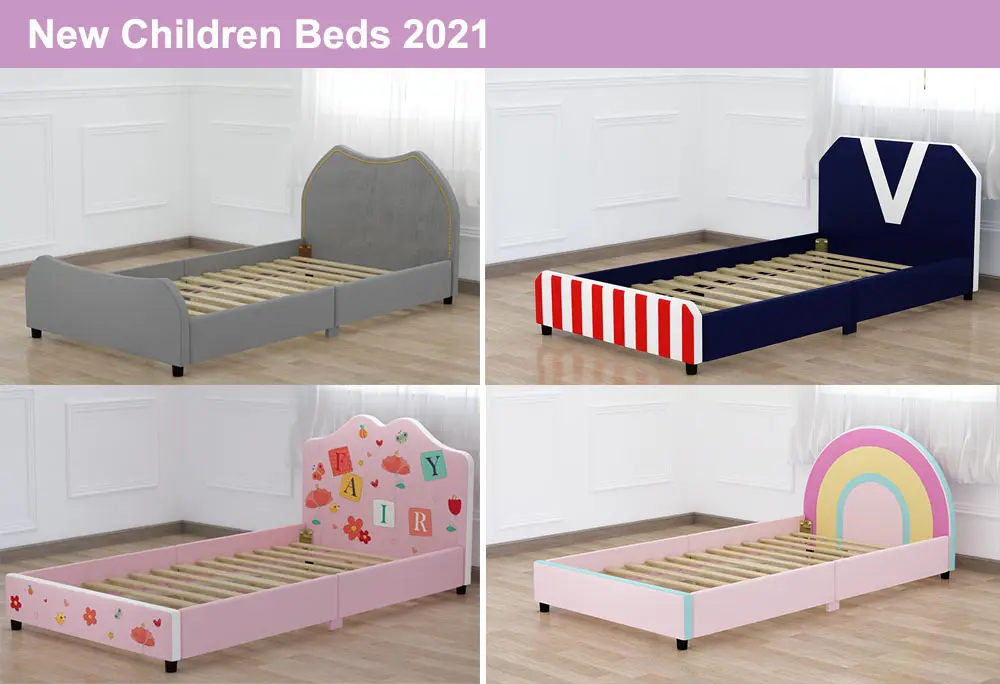In order to protect the safety and health of children, parents need to be extra cautious when choosing children’s beds and avoid choosing brightly colored and intricate bed designs. Colors that are too bright can contain harmful substances and can have an impact on your child’s health if exposed to them over time, while complex patterns can not only trap dirt and dirt, but can also cause accidental scratches while playing. Therefore, parents should choose a simple and safe bed design to provide a comfortable and healthy sleeping environment for their children.
The bed plays a vital role in the child’s development, not only providing a comfortable sleeping environment, but also being the guardian of the child’s safety and health. However, parents are attracted by the dazzling variety of children’s beds on the market, with their brightly colored and intricate designs, but they often ignore the health risks that may be hidden behind these designs. Brightly coloured paints can contain harmful substances that can pose a health threat to children when exposed to them over time, while bedding with complex patterns can be a distraction and, in some cases, a safety hazard even associated with overly complex designs. Therefore, when choosing a children’s bed, we should take the safety and health of the child as the primary consideration, avoid blindly pursuing the beauty of the appearance, but pay attention to the environmental protection of the material, the simplicity and functionality of the design, and ensure that each children’s bed can become a solid backing for the healthy growth of the child.

When it comes to choosing a children’s bed, many parents often fall into some common pitfalls. One of the most typical is the choice of colors and patterns. Many parents believe that in order to attract their children’s attention, the color of the bed should be as bright as possible, and the pattern should be complex and varied. However, such a view is not entirely true. In fact, overly bright colors may stimulate children’s visual perception and affect their sleep quality, while complex patterns can easily distract children and not help them develop their ability to concentrate. In addition, the excessive complexity of colors and patterns may also hide some safety hazards. For example, some overly complicated patterns may use paints that contain harmful substances, which can pose a potential threat to children’s health. Therefore, we recommend that when choosing a children’s bed, you should give preference to products with pastel colors and simple designs. Such a bed is not only good for your child’s health and growth, but it also meets safety standards and creates a safe and comfortable sleeping environment for your child.
Choosing the right bed for your child is like choosing a pair of shoes that fit them, which is not only about their comfort, but also an important part of their health. Imagine if the shoes don’t fit, walking will be uncomfortable, and over time, it may also affect the development of the feet, and even cause abnormal gait. In the same way, if the children’s bed is not selected properly, it will not only affect the child’s sleep quality, but also may have a negative impact on the development of the spine in the long run. When choosing a children’s bed, we should consider not only the appearance and size, but also the safety, stability and material of the bed. A good children’s bed should have smooth corners to avoid the risk of scratches that may be caused by sharp edges; the structure of the bed frame should be stable to avoid shaking or collapsing, which threatens the safety of children; in terms of materials, environmentally friendly and harmless materials should be selected to reduce the hidden dangers to children’s health. In general, although the process of choosing a children’s bed needs to be meticulous, as long as we stand in the child’s perspective and consider his or her growing needs, we can choose a safe and comfortable growth partner for the child.
Post time: Mar-01-2024

